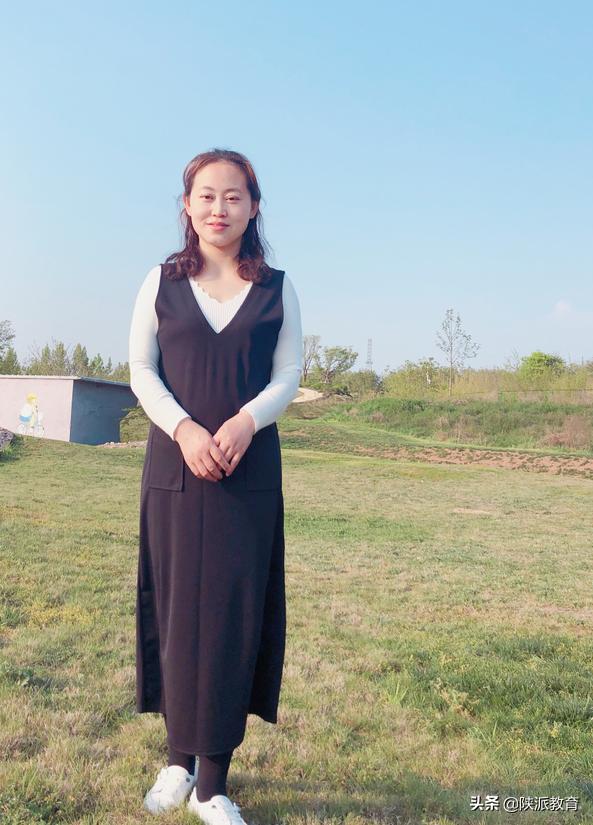非常实用的问候与介绍英文(非常实用的问候与介绍)
Hello, I'm Oli, I'm a teacher from Oxford Online English. ,我来为大家讲解一下关于非常实用的问候与介绍英文?跟着小编一起来看一看吧!

非常实用的问候与介绍英文
Hello, I'm Oli, I'm a teacher from Oxford Online English.
Today's lesson is about greetings.
大家好,我是奥利,我是牛津在线英语的一名老师。
今天的课程是关于问候的。
Greeting means saying "Hello". "Hello'" is probably the first word you learnt in English, right?
问候就是问好的意思。"Hello" (你好)大概是你们学的第一个英语单词吧?
Because it's such a simple thing to say "hello" to somebody, or is it?
Actually, there are many ways to say "hello" to somebody in English.
因为向别人问好是一件非常简单的事情,果真如此吗?
事实上,在英语中有很多向别人问好的方式。
And it can sound strange if you use the wrong one in the wrong situation.
Today, we're going to look at greetings in English in some more detail.
如果你在错误的情况下使用了错误的问好方式,那听起来就很奇怪了。
今天我们要来详细讲讲英语中的问候语。
So first, let's look at formal greetings.
"Hello" is a very useful word because you can use it in almost any situation.
首先我们来看看正式问候。
"hello" 是个非常有用的词,因为几乎在所有的情况下都能用它。
But, in a more formal situation, you might want to use a more formal greeting, like "Good morning", "Good afternoon", "Good evening".
Note that you can't use "Good night" as a way to say "hello".
但是在较为正式的场合中,你可能要用更为正式的问候语,比如 "Good morning" (早上好),"Good afternoon" (下午好), "Good evening"(晚上好)。要注意,不能把 "Good night" (晚安)用作一种问好方式。
"Good night" only means "goodbye" in English.
Also, we never use "Good day" in modern English, except as a joke.
在英语中,"Good night" 只有“再见”的意思。
还有,在现代英语中,我们从来不说 "Good day" (日安),除非是开玩笑。
So, if you're introduced to someone in a formal situation, you can say "How do you do".
And if someone says "How do you do" to you, you can say the same thing to them.
所以,如果你在正式场合中被介绍给了某人,你可以说 "How do you do" (您好,您怎么样?)。如果有人跟你说 "How do you do",你也可以回以同样的内容。
Note that "How do you do" is normally only used after someone is introduced.
So first you say "Hello", the other person says "How do you do", you can reply "How do you do".
要注意,一般只有在某人已经被介绍过了以后才能对他(她)说 "How do you do"。
所以首先你说“你好”,另一个人说 "How do you do" ,然后你就可以回答说 "How do you do"。
That's quite formal.
OK, but what if you want to greet someone informally?
这样相当正式。
好了,但是如果你想非正式地问候别人该怎么做呢?
So "Hi" or "Hey" are the most common ways.
In informal situations you might hear Americans say "How's it going?"
最常用的是说 "Hi" (嗨)或者 "Hey" (嘿)。
在非正式的情况下,你可能会听到美国人说 "How's it going?" (最近怎么样?)
British people say "Alright?"
These sound like questions, but they don't need an answer.
英国人会说 "Alright?" (还好吗?)
这些听起来像问题,但是他们并不需要回答。
If you want to answer, you can say the same thing back.
So if you're introduced to someone in an informal situation, "Nice to meet you" is the most common thing to say.
如果你想回答,可以回以同样的内容。
所以如果你在非正式的场合中被介绍给了某人,"Nice to meet you" (很高兴见到你)是最常用的问候方式。
You can use "Nice to meet you" in almost any situation, and the best reply is "Nice to meet you, too", very simple.
OK, what about asking "How are you?"
几乎在所有的情况下都可以使用 "Nice to meet you" ,而最好的回答就是 "Nice to meet you, too" (我也很高兴见到你),非常简单。
好了,问 "How are you" (你好吗?)怎么样呢?
Often, after we say "Hello", we ask the person "How are you?"
There are many ways to ask this question, for example, "OK. How are you?" "How's it going?" "How are things?" "How's life?"
通常当我们说了 "Hello" 以后,我们会问那个人 "How are you?" 。
有很多问这个问题的方式,比如 "How are you?" (你怎么样?) "How's it going?" (最近怎么样?) "How are things?" (最近事情怎么样?) "How's life?" (最近生活怎么样?)
Most of these are quite informal.
So, if you're in a more formal situation, it's best just to use a simple "How are you?"
这些中大多都是非常不正式的。
所以,如果你身处于一个较为正式的场合中,最好直接简单问个 "How are you?" 。
OK, let's look at introducing yourself and introducing other people.
In a normal situation, introductions are very simple.
好了,我们来看看如何介绍自己和介绍别人。
在一般的情况下,介绍是非常简单的。
To introduce yourself, you say, "I'm Oli," and to introduce someone else you say, "This is my friend."
But in a more formal situation you could use another phrase, for example: "Let me introduce myself, I'm Oli."
介绍自己的话,你可以说 "I'm Oli" (我是奥利),介绍别人时你可以说 "This is my friend." (这是我朋友)。
但是在较为正式的情况下,你可以用个其他的短语,比如:“请让我介绍一下我自己,我是奥利。”
"Let me introduce my colleague, this is Rob." "Allow me to introduce my good friend Ben."
“我来介绍一下我的同事,这是罗博。”“允许我介绍一下我的好朋友本。”
"May I introduce our speaker today, Mrs. Jones."
In these situations, it can sound very strange if you use a greeting which is too formal or too informal.
“我来介绍一下我们今天的演讲者琼斯女士。”
在这些情况下,如果你使用了一个过于正式或过于不正式的问候语就会听起来非常奇怪。
So if you aren't sure, use boring, neutral language: "Hello, how are you, I'm Oli, this is my friend."
But, if you can use different styles of greeting correctly, your English will sound more natural.
所以如果你不确定,那就用单一中性的语言,比如:“你好,你怎么样?我是奥利,这是我的朋友。”
但是,如果你能正确地使用不同风格的问候语,你的英语就会听起来更加自然。
If you want more practice with this topic, come to our website oxfordonlineenglish. com.
You can find a text and exercises, as well as many other free lessons.
如果想再练习一下这个话题,请登陆我们的网站 oxfordonlineenglish. com。
可以在网站上找到文本和练习,以及很多其他的免费课程。
That's all for today, thank you for watching.
I'll see you next time.
今天就这样了,感谢你的观看。
下次见。
Bye bye!
拜拜!
,免责声明:本文仅代表文章作者的个人观点,与本站无关。其原创性、真实性以及文中陈述文字和内容未经本站证实,对本文以及其中全部或者部分内容文字的真实性、完整性和原创性本站不作任何保证或承诺,请读者仅作参考,并自行核实相关内容。文章投诉邮箱:anhduc.ph@yahoo.com






